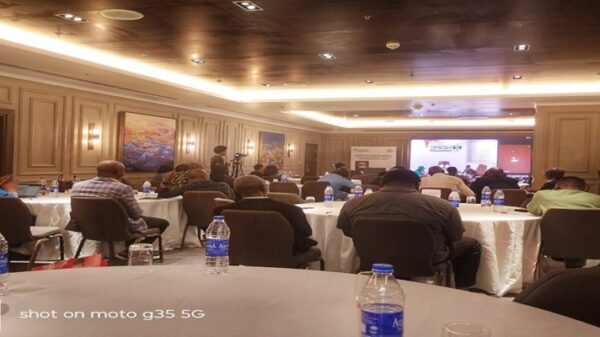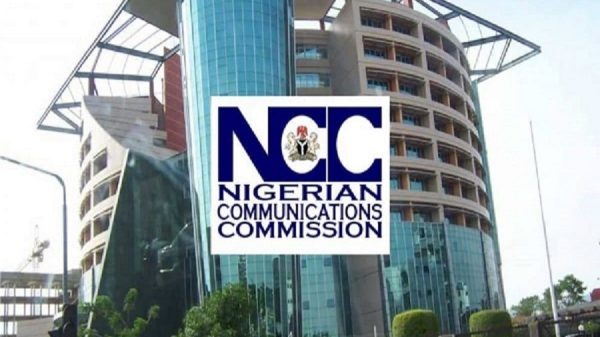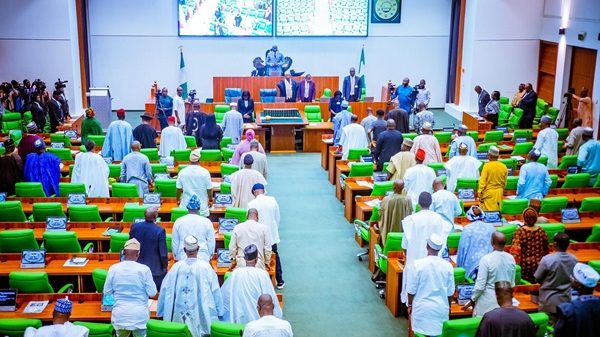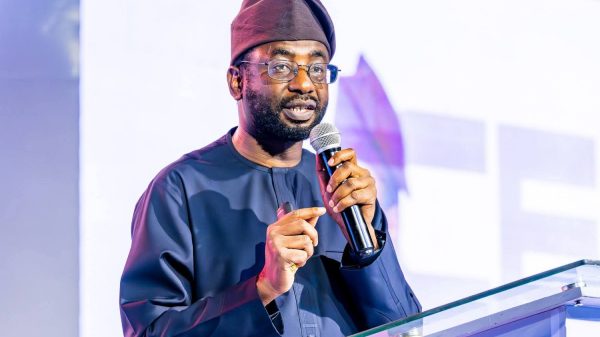By Dr. B. B. Usman
Many billions of data sets are entangled and suffocated in SMEs’ business value chain. This scenario is creating enormous problem to leveraging e-Commerce for economic development, provision of jobs and creation of wealth.
Post COVID-19 pandemic issueshave disclosed that,‘unless we consciously promote and empower e-Commerce in Nigeria, the consequences may result to the annihilation of SMEs’! Indeed, without a well-structured and resilience SME segment, there may be no viable trade and commerce platform for constructive intervention toattain our sustainable development goals.Gains from e-Commerce can write the cheque to significantly assist in revivingour dying SMEs and reduce youth employment in Nigeria.
This is possible, if we can intelligently provide the framework to secure and analyse related data sets that gets missing in action by policy makers each day.The phenomenal data genocide observed in our trade-ecosystem, if rescued, can create millionsof jobs; as well as value chains of wealth for the country. It will also renew lost hope for the disillusioned youths,their families and indeed contribute positively to the GDP.This calls for a proactive National e-Commerce policy and devoted strategies to energize indigenous business empires.
Unarguably, the biggest problem we face in Nigeria/Africa is leveraging evidence-based data for accelerated development and economic advancement. For want of an equitable expression, with respect to e-Commerce analytics; it appears we are annihilating data required for the growth and security of life.In other words, our concern should now be focused on exploring if we are not facing e-Commerce data genocide in Africa?
It is significant to note that data genocide contributes to catastrophic e-Commerce poverty in Nigeria/Africa.This is against the background of the energy status in the production and development processes of the wealth creation value-chain. For example, reliable data informs that the total energy consumption required for the advancement of education, shelter, trade and security in Africa is equal to the total power generation and consumption volume in the Republic of Spain!
Therefore, this is the right time to empower mega e-Commerce companies in Nigeria.
To achieve this, the smart economic approach is to urgently start trade recovery investment to rescue millions of small-scale SMEs currently on life support and dying out there. In the United States, for example, over 480,000 of small-scale enterprises have gone under! SMEs represent the economic backbone of mega enterprises and sustainable mechanism for effective governance and national security-of-things. Reliable estimatesindicate that if an e-Commerce outfit such as Konga in the Zinox Group and others are empowered to create physicalmarket distribution presence in the 36 States; the stimulant intervention will energise the creation of 20,000 new small-scale enterprises with capabilities to create over five million jobs and related activities in the trade, commerce and logistics industries. In a span of 24 calendar months; e-Commerce enabled solar energy to millions of homes will produce three million employment avenues for Nigeria.
Post-pandemic reality has now cleared the air that the world can now anticipate a 276.9% increase in worldwide ecommerce sales over the most-recently tracked period (cumulative data). However, many business owners and investors are vigorously scratching their heads and strategizing on how to participate and scale into that magic number adding up to $4.7 trillion; where e-Commerce has a sizeable chunk in the market playbook.How can Nigeria’s e-Commerce domain benefit from the emerging market?
Today, the term going global has become almost meaningless. The irony is that all nations, business and everything in-between are dreaming of going global. Whereas, this is an illusion, because the world is intertwined and already gone global. The new challenge is that some geographical spheres are dreaming of rebuilding traditional trade fences – domestically!Nevertheless, the Harvard Business Review recently informed that:“Business leaders are scrambling to adjust to a world few imagined possible just a year ago. The myth of a borderless world has come crashing down. Traditional pillars of open markets — the United States and the UK — are wobbling, and China is positioning itself as globalization’s staunchest defender.”
Currently, the majority of the world’s entrepreneurs/CEOs recognize that Big-Data holds the key to discovering and recovering the abundant wealth in Africa. But without evidence-based predictive analysis, the e-Commerce benefits will perhaps remain a pipe dream. Now, how can we propel African e-Commerce to the next level and at the same time limiting the risks?
Historically, Africa had been a mega trading continent. And to date, Africa remains a trading destination continent – reminding us about Mansa Musa of old Mali Empire and the gold riches. The recorded fame of Musa I. (c. 1280 – c. 1337), or Mansa Musa, apart from his kingship background, was entirely due to his ingenuity in trade and commerce. Little wonder he has been described as the wealthiest individual in all human history.But today the continent has been inundated with several challenges – limiting her trade development potential and innovation. Visibly noticed as central to Africa’s development challenges are technology and related trade and commerce infrastructure. The good news today is, the same technology phenomena infested by digital transformation is igniting Africa with e-Commerce revolution.
It is evident that, this revolution is happening at the speed of thought while Africa’s data rate of response to digital commerce is better described as unacceptable snail speed that leads to nothingness. Ironically, the continent still harbours a major chunk of the global wealth. The resilience to conquer those challenges lie on the capability and mastery of e-Commerce delivery and services.What constitutes the beneficial substances of re-imagining the Nigerian trade and commerce model? Numbers speak. According to WTO,‘‘Africa is undergoing a remarkable energy transformation. But African governments and their international partners must accelerate that transformation if we are to achieve our collective ambitions. Access to clean modern energy, especially in Africa, where 620 million people have no electricity, is critical to the success of global efforts to tackle poverty.’’
One critical factor stands out, andthat is, digital infrastructure to promote e-Commerce and energize multi-sectoral market segments.
The telecoms infrastructure support to e-commerce logistics and service delivery remains a strategic imperative. The INFRACO initiative targeted at the telecoms section holds a great promise, if the investment assurances are strategically put into action as a post COVID-19 pandemic recovery plan. This is critical, especially if channelled in partnership with experienced and trustworthy development groups. Again, a good example of such dynamic groups in Nigeria isthe Zinox Group where Konga qualifies and fulfils the expectations of showcasing reasonable equity to eliminate financing gaps. This can be achieved by concentrating such investment into digital innovation solutions. On the long term, as demonstrated by InfraCo Africa, Infraco model investment championed by proactive Government financing reduces identifiable risks and costs of implementation. Not only that, it goes a long way to ensure project reliability and standards that fulfils the expectations of sustainable development Goals (SDGs).
Looking at 2050, what will become of our post COVID-19 economic outlook, without a dynamic and health e-Commerce ecosystem? A very lucid question indeed! Will the digital evolution validate the known adage that; “when the poor have nothing more to eat, they will consume the rich”? This is the time to act. We must not allow the looming digital tsunami to consume our trade and commerce missions. There will be great consequences,if that is allowed to happen.We must avoid travelling back in timefrom digital divide tothe invisible traps of the emerging digital poverty!
Let there be action. The nation is at war with the COVID-19 pandemic. The vaccines are knocking at the door. Now, the central concern is how to empower the youth to engage and own the emerging digital knowledge ecosystem. This can be doneby instituting a special national cluster for Nigeria’sDigital Transformation Innovation Readiness for Nigeria. The first line of action is creating and reconstructing a digital transformation movement mindset and political will to defeat consumerism, corruption and enthrone bold philosophies of prioritizing merit for advancement in science and technology-enabled manufacturing. Nigeria must lead this complex mission in the combat of global digital knowledge acquisition to drive trade and commerce and succeed.
E-Commerce has the magic to facilitate the sustainable development of Africa’s youth employment and digital wealth creation. This agendaincludes re-imagining national economic development and corporate governance pathways;while fast-tracking government mandatory responsibilities through proactive intervention strategies. It also includes the conscious responsibility to analyseour environment, communication and digital divide challenges in Africa and prepare for the world of AI, which includes raising a future digital army for national and continentalsecurity.
Refocusing our development from figurative oil-based data to digital commerce transformation information system is the panacea for migrating the nation from an economy that generates an internal revenue of $9 billion as against $39billion import to register $trillion trade export numbers as a meticulous enterprise out of Africa.Moving forward, there should be no further excuses for Africa with her large population and market to continue failing digital exams repetitively; sitting in the same class of knowledge advancement! The new and profound dream must commence now. Our entrepreneurial-mind treasure is capable and must advance our success agenda from the euphoria of self-celebration to being celebrated by the world.
![]()



























































